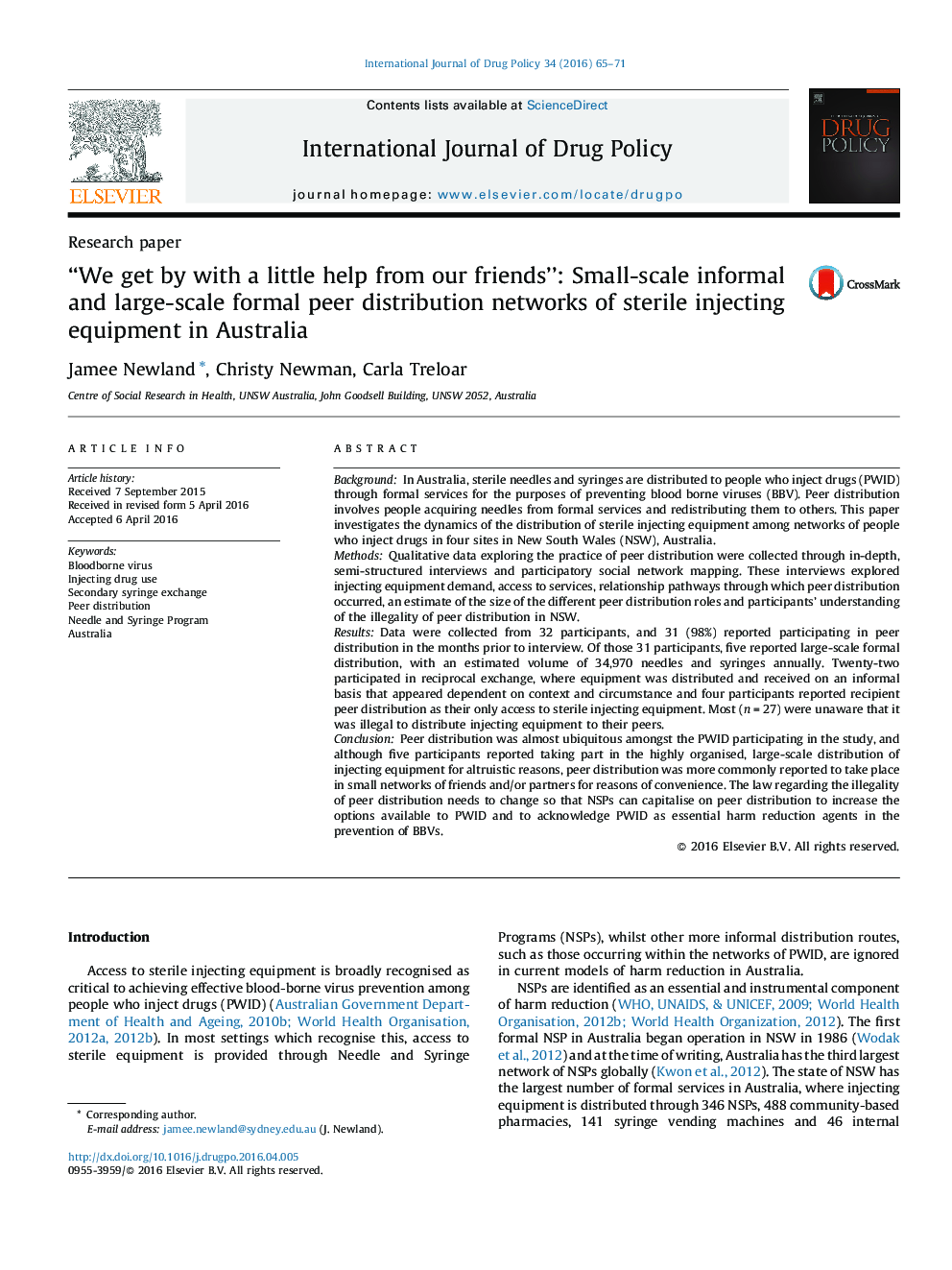| Article ID | Journal | Published Year | Pages | File Type |
|---|---|---|---|---|
| 1074912 | International Journal of Drug Policy | 2016 | 7 Pages |
BackgroundIn Australia, sterile needles and syringes are distributed to people who inject drugs (PWID) through formal services for the purposes of preventing blood borne viruses (BBV). Peer distribution involves people acquiring needles from formal services and redistributing them to others. This paper investigates the dynamics of the distribution of sterile injecting equipment among networks of people who inject drugs in four sites in New South Wales (NSW), Australia.MethodsQualitative data exploring the practice of peer distribution were collected through in-depth, semi-structured interviews and participatory social network mapping. These interviews explored injecting equipment demand, access to services, relationship pathways through which peer distribution occurred, an estimate of the size of the different peer distribution roles and participants’ understanding of the illegality of peer distribution in NSW.ResultsData were collected from 32 participants, and 31 (98%) reported participating in peer distribution in the months prior to interview. Of those 31 participants, five reported large-scale formal distribution, with an estimated volume of 34,970 needles and syringes annually. Twenty-two participated in reciprocal exchange, where equipment was distributed and received on an informal basis that appeared dependent on context and circumstance and four participants reported recipient peer distribution as their only access to sterile injecting equipment. Most (n = 27) were unaware that it was illegal to distribute injecting equipment to their peers.ConclusionPeer distribution was almost ubiquitous amongst the PWID participating in the study, and although five participants reported taking part in the highly organised, large-scale distribution of injecting equipment for altruistic reasons, peer distribution was more commonly reported to take place in small networks of friends and/or partners for reasons of convenience. The law regarding the illegality of peer distribution needs to change so that NSPs can capitalise on peer distribution to increase the options available to PWID and to acknowledge PWID as essential harm reduction agents in the prevention of BBVs.
